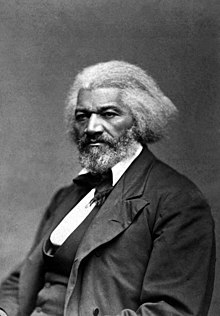Frederick Douglass: A Republican Voice for Freedom and Equality
Frederick Douglass, one of America’s most influential abolitionists, orators, and social reformers, holds a prominent place in history as a staunch advocate for equality and justice. Often remembered for his role in the fight to end slavery and his powerful autobiographical works, Douglass was also a proud member of the Republican Party. His affiliation with the party was deeply rooted in its founding principles and its commitment to the abolition of slavery and the advancement of civil rights during the 19th century.
The Republican Party and Anti-Slavery Principles
The Republican Party was established in 1854 as a response to the expansion of slavery in the United States. Its platform sought to prevent the spread of slavery into new territories and to uphold the ideals of liberty and equality outlined in the Declaration of Independence. These principles resonated strongly with Frederick Douglass, who had escaped slavery and dedicated his life to the cause of freedom. Douglass recognized the Republican Party as a political force aligned with his mission to eradicate slavery and secure civil rights for African Americans.

Douglass’s Role in the Republican Party
Douglass became an outspoken supporter of the Republican Party and worked closely with its leaders, including President Abraham Lincoln. He was a vocal advocate for the Union cause during the Civil War and encouraged African American men to enlist in the Union Army, believing that their participation would help secure their rights as citizens. Douglass’s support for Lincoln was rooted in the president’s issuance of the Emancipation Proclamation, which marked a turning point in the fight against slavery.
After the Civil War, Douglass continued to align himself with the Republican Party as it championed Reconstruction and the passage of the 13th, 14th, and 15th Amendments to the Constitution. These amendments abolished slavery, granted citizenship to formerly enslaved individuals, and secured voting rights for African American men. Douglass saw the Republican Party as a vehicle for progress and justice, often speaking at party conventions and working to mobilize African American voters.
A Complex Political Legacy
While Douglass remained loyal to the Republican Party for much of his life, he was not without criticism of its leaders and policies when he felt they fell short of their promises. He was particularly vocal about the party’s retreat from Reconstruction and its failure to protect African Americans from the rise of discriminatory Jim Crow laws in the South. Despite these frustrations, Douglass’s commitment to the principles of liberty and equality remained steadfast.
The Relevance of Douglass’s Republicanism Today
Frederick Douglass’s affiliation with the Republican Party serves as a reminder of the historical roots of the party as a champion of abolition and civil rights. His legacy challenges modern Americans to examine how political parties evolve over time and how the principles of justice and equality can transcend party lines. Douglass’s life and work continue to inspire individuals across the political spectrum to fight for a more equitable society.

In conclusion, Frederick Douglass’s identity as a Republican was deeply intertwined with his lifelong dedication to freedom and equality. By aligning himself with the Republican Party of his era, Douglass demonstrated his belief in the power of political action to effect meaningful change. His unwavering commitment to justice serves as a guiding light for those who continue to advocate for human rights in the face of adversity.

